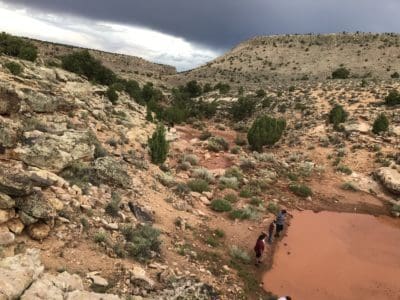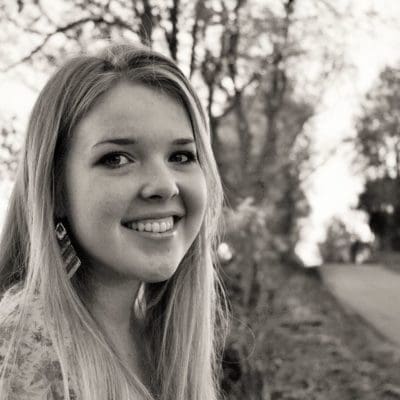Learning Through Transformed Brokenness
The Juniper bush grows in the harshest of conditions. Its kind can be found in diverse regions ranging from sea level to 10,000 feet in elevation, but the plant (also called a cedar) is commonly found in the vast copper terrain of the American southwest. Through the unforgiving trials of the desert, the Juniper’s survival seems like a miracle. Untamed wind cannot tear down its malleable branches, just as prolonged droughts cannot take its life. The Juniper’s unassuming strength not only helps in its own survival, but also plays an integral role in the ecosystem. Small creatures find shade under cedar branches, nutrients in its berries, and the lifecycle then continues.
Only our Creator can design a system so perfect that the Juniper can find the means to thrive in scalding desert conditions. Just as our God can make a seemingly bleak and helpless terrain into a vibrant landscape, He can transform the universal effects of a broken world into prosperity. Every person is affected, but individuals, cultures, and countries experience brokenness in different magnitudes. Over countless years, the Navajo people have withstood broken systems enacted by broken people. They have seen enough hardships that would overwhelm the many gaps in American history books. However, in this pain only the love of Jesus can transform the acts of suffering into a life of patience and generosity, traits that my Navajo family encompass completely.
And as the Juniper’s grand design sustains life in the desert, through the power of our Father, my brothers and sisters in Cedar Ridge provide hope and healing in their communities haunted by brokenness.
In the years 1944 to 1986, private companies and the federal government leased Navajo land to extract uranium. Many Navajo families found work in these mines, unaware of the effects caused by uranium exposure. To this day, water, soil, and air in the area remains contaminated by the 500 abandoned mines on the reservation. Results of uranium exposure include lung and bone cancers as well as kidney failure. Little action has been taken to resolve the issues. Like the mines, stories of injustice run rampant on Navajo land.
This systematic oppression is difficult to comprehend, but its effects are easy to identify. Drug use, violence, disappearances and poverty are remnants of brokenness that seep through the reservation. Even in recent years, people have died due to the cold and starvation. These issues seem overwhelming, especially since they are so overlooked. However, our Navajo brothers and sisters in Christ remember and learn from the past, but rely on the Lord for the future. Their faith is a constant reminder of the greatness of our God. They do not limit His goodness to time or expectation, but rather, they find strength in transformed brokenness to empower their people.
 We can find unity in brokenness. Human nature fell from God’s grand design, but just as we have all fallen short, we all are created in His image. I have never met a person or culture that can really encompass the full image of our God, but it is in our different strengths that we can understand His nature more and more. Our perception of the goodness of God can be limited to our own experiences, but if we recognize the beauty in diverse backgrounds and transformed brokenness, our understanding of God reaches greater heights.
We can find unity in brokenness. Human nature fell from God’s grand design, but just as we have all fallen short, we all are created in His image. I have never met a person or culture that can really encompass the full image of our God, but it is in our different strengths that we can understand His nature more and more. Our perception of the goodness of God can be limited to our own experiences, but if we recognize the beauty in diverse backgrounds and transformed brokenness, our understanding of God reaches greater heights.
The Navajo have taught me many aspects of the image of God that I had not experienced elsewhere. Their wisdom comes through listening and their value for all life reflects a natural stewardship. They live simply, but give in excess and they stand strong in the face of any adversity. The Navajo are an integral part of the Body of Christ just as the Juniper brings an important role in natural life of the desert. We need Christ’s love to alleviate brokenness and we need each other to walk and grow closer to our God. Thus, we come alongside the Navajo and find hope and redemption in Christ together. How wonderful it is that we can advocate for change for a broken world through the love of our Father and the strength of our brothers and sisters!
 ABOUT GRACE
ABOUT GRACE
After growing up in Northern California, Grace’s family moved to Wilmore, Kentucky where she attends Asbury University and is completing her degree in Social Work. Her family has been a longtime friend of WMF and works alongside a Navajo church in Arizona. They travel with Word Made Flesh every year to spend time there. Grace will graduate in May 2019 and will then transition to full-time work with the Navajo Nation.
Connect with Grace: graciedean48@gmail.com
